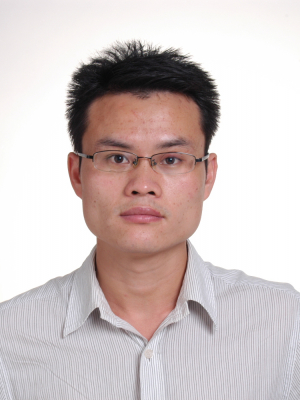Ph.D., Professor
Environmental Microbiomics Research Center
School of Environmental Science and Engineering
Southern Marine Science and Engineering Guangdong Laboratory (Zhuhai)
Sun Yat-sen University
132 East Circle, University Town, Guangzhou 510006, China
Tel: +86-20-39332743
E-mail: wangshanquan@mail.sysu.edu.cn
Education
2008.1-2012.6 Ph.D. National University of Singapore, Singapore
2004.9-2007.6 M.E. Beijing Normal University, Beijing, China
2000.9-2004.6 B.E. University of Science & Technology Beijing, Beijing, China
Professional Experience
2020.1 – Current, Professor, Sun Yat-Sen University
2016.1 – 2019.12, Associate Professor, Sun Yat-Sen University
2014.7 – 2016.1, Postdoctoral research associate, University of Illinois at Urbana-Champaign
2012.7 – 2014.6, Research fellow, National University of Singapore
2012.6 – 2014.6, Visiting research fellow, Genome Institute of Singapore
Research Interest
My lab research focus on functional environmental anaerobic microorganisms and their implications in conversion of persistent organic pollutants (POPs) and water-energy nexus. We integrate cultivation, meta-omics, molecular microbiology and engineering bioreactor to gain fundamental insights of our complex biosystems (e.g. bioremediation sites and anaerobic digesters) specifically from molecular-, cellular-, community- to system-levels. The generated knowledge on these reductive processes will be further employed to devise novel methods, techniques and products for our environmental engineering purposes.
Projects
Microbial Reductive Dechlorination of PCBs. National Natural Science Foundation of China. RMB 1,200,000. PI, 2020-2022.
Stimulation of organohalide respiration for efficient bioremediation of halogenated POPs. National Natural Science Foundation of China. RMB 620,000. PI, 2019-2022.
Bio-nZVI-RD for efficient remediation of organohalides. Fundamental Research Funds for the Central Universities. RMB 300,000. PI, 2019-2020.
Formation and control of dysodia in hog farms. Natural Science Foundation of Guangdong Province. RMB 1,000,000. PI, 2018-2022.
Microbial Reductive Dehalogenation of PCBs and PBDEs: Molecular Methods and Organohalide Respiration Mechanism. National Natural Science Foundation of China. RMB 680,000. PI, 2017-2020.
Microbial Reductive Dehalogenation. Bairen Scholar Program of Sun Yat-Sen University. RMB 1,650,000. PI, 2016-2018.
Environmental Molecular Microbiology. Cluster Teaching Program of Sun Yat-Sen University. RMB 500,000. PI, 2016-2018.
Selected Publications
(https://www.researchgate.net/profile/Shanquan_alan_Wang2)
Paper publications
1. Qiu, L., Fang, W., He, H., Liang, Z., Zhan, Y., Lu, Q., Liang, D., He, Z., Mai, B., Wang, S.* (2020) Organohalide-Respiring Bacteria in Polluted Urban Rivers Employ Novel Bifunctional Reductive Dehalogenases to Dechlorinate Polychlorinated Biphenyls and Tetrachloroethene. Environ. Sci. Technol. 54(14):8791-8800. .
2. Liang, Z., Shi, J., Wang, C., Li, J., Liang, D., Yong, E.L., He, Z., Wang, S.* (2020) Genome-Centric Metagenomic Insights into the Impact of Alkaline/Acid and Thermal Sludge Pretreatment on the Microbiome in Digestion Sludge. Appl. Environ. Microbiol. 86(23):e01920-20.
3. Xu, G.†, Lu, Q.†, Ling, Y., Wang, S.* (2019) Tetrachlroethene primes reductive dechlorination of polychlorinated biphenyls in river sediment microcosm. Water Res. 152:87-95.
4. Yu, L.†, Lu, Q.†, Qiu, L., Xu, G., Zeng, Y., Luo, X., Wang, S.*, Mai, B. (2018) Enantioselective Dechlorination of Polychlorinated Biphenyls in Dehalococcoides mccartyi CG1. Appl. Environ. Microbiol. 24:1300-18.
5. Wang, S.*, Qiu, L., Liu, X., Xu, G., Siegert, M., Lu, Q., Juneau, P., Yu, L.*, Liang, D.*, He, Z., Qiu, R. (2018) Electron transport chains in organohalide-respiring bacteria and bioremediation implications. Biotechnol. Adv. 36(4):1194-1206.
6. Wang, S.*, Chen, S., Wang, Y., Low, A., Lu, Q., Qiu, R.* (2016) Integration of organohalide-respiring bacteria and nanoscale zero-valent iron (Bio-nZVI-RD): a perfect marriage for the remediation of organohalide pollutants? Biotechol. Adv. 34(8):1384-1395.
7. Wang, S., Chng, K.R., Chen, C., Bedard, D.L., He, J. (2015) Genomic Characterization of Dehalococcoides mccartyi Strain JNA That Reductively Dechlorinates Tetrachloroethene and Polychlorinated Biphenyls. Environ. Sci. Technol. 49(24):14319-25.
8. Wang, S.†, Chng, K.R.†, Wilm, A., Zhao, S., Nagarajan, N.*, and He, J.* (2014) Genomic characterization of three unique Dehalococcoides that respire on persistent polychlorinated biphenyls. PNAS. 111(33):12103-8. †These authors contributed equally. (Featured as PNAS cover story, and highlighted in Science Daily, Lianhe Zaobao, Asian Scientist Magazine, Dredgingtoday and BioSpace)
9. Wang, S., He, J.* (2013) Dechlorination of commercial PCBs and multiple other halogenated compounds by a sediment-free culture containing Dehalococcoides and Dehalobacter. Environ. Sci. Technol. 47(18):10526-34.
10. Wang, S., He, J.* (2011) Separation of fluorescence-labelled terminal restriction fragment DNA on a two-dimensional gel (T-RFs-2D) - an efficient approach for microbial consortium characterization. Environ. Microbiol. 13(9):2565-2575.
Book
Wang, S., He, J., Shen, C., Manefield, M. J., eds. (2019). Organohalide Respiration: New Findings in Metabolic Mechanisms and Bioremediation Applications. Lausanne: Frontiers Media. doi: 10.3389/978-2-88945-848-6.

